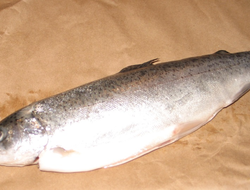Fish and seafood: selecting for health
Published: March 15, 2019
Research indicates that eating more fish, and reducing red meat consumption, is associated with a variety of health benefits.
Pesco-vegetarians (pescatarians), or vegetarians who regularly consume fish appear to have a reduced risk of several chronic diseases.
Because of the perceived health benefits associated with incorporating fish into their diets, people are advised to consume at least 2 servings of fish per week.
However, certain fish species may contain contaminants which can be harmful to your health.
For example tuna, one of the most commonly consumed fish is known to contain mercury which, when consumed in large amonts, is associated with adverse health effects.
In addition, the way in which some fish is caught or farmed, and/or processed may contribute to adverse health effects not only directly, but also indirectly with respect to environmental damage.
Your decisions regarding the inclusion of fish in your eating for health plan depend on a variety of factors which include, and are not necessarily limited to: your personal perspective of health, food preferences, personal health, and cost.
The nutritional profile of fish, your understanding of the health benefits associated with consuming fish, likely contaminants, and the environmental impact of fish farming and/or production may also influence your decisions to eat fish.
Finally, what about fish oil supplements?
Nutritional profile
References
1.
Whitney, E. & Rady Rolfes, S. (2005). Understanding Nutrition. Belmont, CA: Thomson Wadsworth
2.
CSPI March 2014, September 2012, December 2006, May 2011, January 2014, June 2011, June 2013, May 2008, July/August 2013, October 2013


